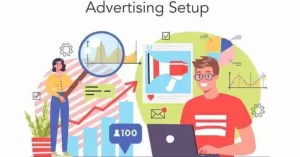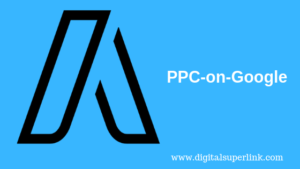Master Google PPC Campaigns Now:
Option 1: Highlights Skill and Results
Master Google PPC Campaigns: Become a PPC expert by creating high-performing advertisements with a good ROI.
Option 2: Highlighting the Strategic Focus
Master Google PPC Campaigns: Discover advanced strategies, data-driven decision-making, and optimization techniques for increasing ad success.
Option 3: Focus on Comprehensive Knowledge
Master Google PPC Campaigns: Gain a deep understanding of Google Ads, including bidding, targeting, ad creation, and analysis, to dominate campaigns.
Phase 1: Research & Planning:
- 1 Keyword Research
- Identify primary keywords
- Identify secondary keywords
- Identify negative keywords
Keyword Research & Selection
- Broad & Specific Keywords: Use tools like Google Keyword Planner, SEMrush, Ahrefs, etc. for research. Combine broad and highly targeted keywords.
- Search Intent: Analyze the intent behind keywords (informational, navigational, or transactional) to better match your ads and landing pages.
- Negative Keywords: Add words/phrases you don’t want to trigger your ads to prevent irrelevant clicks.
Also, Read- Keyword Match Types in Adwords as well as Keywords Research
- 2 Competitor Analysis #CompetitorAnalysis
- Identify top competitors
- Analyze competitor ad copies
- Analyze competitor landing pages
- 3 Audience Research #AudienceResearch
- Define target audience
- Identify audience interests and behavior
- Understand audience search intent
Key Points: Thorough Market & Audience Research
- Competitor Analysis: Understand what your competitors are doing: their keywords, ad strategies, and landing pages. Find areas where you can differentiate yourself.
- Customer Profiling: Deeply understand your target audience. Determine:
- Demographics (age, gender, location, interests)
- Pain points they seek to solve
- Search behavior and relevant keywords.
Key Phases of a PPC
1. Goal Setting
- Define Objectives: Identity what you aim to achieve. Consider goals like:
- Increasing website traffic
- Generating leads
- Boosting sales and conversions
- Building brand awareness
- SMART Goals: Make goals Specific, Measurable, Achievable, Relevant, and Time-bound.
- Budget Planning #BudgetPlanning
- Determine campaign budget
- Allocate budget to different ad groups
- Budget Allocation: Set realistic daily/monthly budgets that align with your goals, considering expected click costs.
- Bidding Strategies: Choose between:
- Manual CPC (more control)
- Automated bidding (targets conversions, clicks, etc.) based on your objectives and experience level.
Phase 2: Campaign Setup
- 1- Google Ads Account Setup
- Create a Google Ads account
- Link Google Ads account to Google Analytics
- 2- Campaign Creation #CampaignCreation
- Setup campaign settings
- Create ad groups
- Add keywords to ad groups
- 3- Ad Creation #AdCreation
- Write ad copies
- Design display ads
- Implement ad extensions
Note: Campaign Structuring
- Hierarchical Organization: Structure your campaigns thematically, then create ad groups within them for tighter keyword focus. This aids in ad relevance.
- Match Types: Use match types (broad, phrase, exact) wisely to balance your reach and relevance.
- Geo-Targeting: Target by location to refine your reach to your ideal audience.
Compelling Ad Creative
- Headlines: Craft strong, attention-grabbing headlines that align with keywords.
- Ad Descriptions: Provide concise, benefit-focused descriptions that address searchers’ pain points.
- Call to Action (CTA): Use clear CTAs that motivate the desired action (“Learn More,” “Buy Now,” etc.)
Ad Extensions: Enhance visibility with extensions like site links, callouts, and location extensions.
Also, Read- “PPC on Google” Google AdWords Overview- Inorganic Search Result
Phase 3: Monitoring & Optimization
- 1- Performance Monitoring #PerformanceMonitoring
- Track keyword performance
- Track ad performance
- Monitor campaign budget
- 2- Optimization #Optimization
- Optimize ad copies
- Optimize landing pages
- Adjust bidding strategy
- 3- Reporting #Reporting
- Generate performance reports
- Analyze campaign results
- Make necessary adjustments based on the results
Tracking & Measurement
- Conversion Tracking: Set up accurate tracking to measure the actions you deem valuable (form submissions, purchases, etc.)
- Key Metrics: Monitor:
- Impressions
- Clicks
- Click-through rate (CTR)
- Conversions
- Cost per click (CPC)
- Conversion rate
- Return on Ad Spend (ROAS)
PPC Metrics to Monitor by Master Google PPC Campaigns:
● Impressions: The number of times your ad was displayed to potential customers. For
For example, your hiking shoe ad appeared 1,000 times in search results.
● Clicks: The number of times your ad was clicked.
For example, 50 individuals clicked on your ad for hiking shoes.
● Click-through rate (CTR): The percentage of people who clicked your ad after seeing it (Clicks/Impressions).
Example: 5% CTR (50 clicks per 1000 impressions).
● Conversions: The desired action a user does after clicking (buy, lead form, etc.).
Example: 5 individuals purchased hiking shoes after clicking your ad.
● Cost per click (CPC): The amount you pay for each click on your ad.
For example, your hiking shoes ad includes a CPC of $2.
● Conversion rate: The percentage of clicks that resulted in conversions.
Example: A 10% conversion rate (5 conversions / 50 clicks).
● ROAS (Return on Ad Spend): Revenue generated for each dollar spent on ads.
Example: A $5 ROAS indicates that every $1 spent on ads resulted in $5 in sales.
Why They Matter: These metrics show you how well your advertising is performing, where you could optimize, and whether you’re getting value for your money.
Also, Read- Creating our First Responsive Search Ads Campaign with AdWords Bidding Strategies
Master Google PPC Campaigns: Continuous Optimization
A/B Testing: Always test different ad variations, targeting for better results, and landing pages.
Analyze Data: Explore into data to discover what’s working, what’s not, and where to optimize.
Adjust Bids & Targeting: Improve performance based on insights and trends.
Expand & Iterate: Expand on profitable keywords, ad creatives, and campaigns.
Also, Read- 10 Proven Tips to Skyrocket Your Google Ads Performance.
Essential Tips:
Be patient: PPC success requires continual optimization.
Quality Scores Matter: Go for high-quality Scores to boost ad position and reduce expenses.
Track Everything: Only by tracking results can you make data-driven improvements.
Experiment and modify: Because PPC is a dynamic landscape, you need to be open to learning and trying new techniques.
Also, Read- 10 Secrets to Successful Google Ads Campaigns




